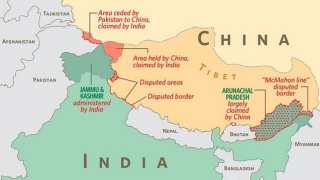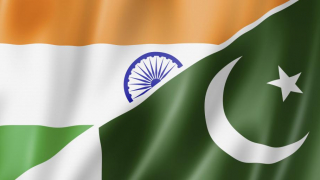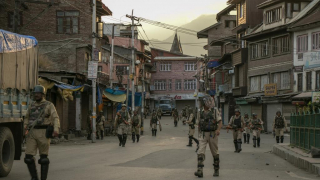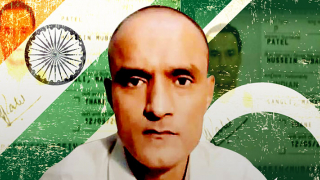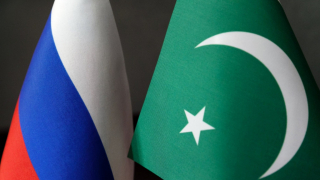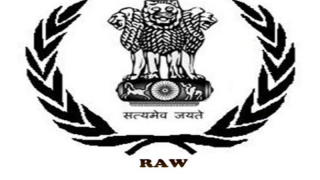Morally Spurious Accusations Of "Sedition" Won't Deter The Sikhs For Justice
Indian courts earlier this month upheld the government's previous designation of the Sikhs For Justice as an "unlawful organization" on the basis of Section 124A of the Indian Penal Code that deals with "sedition", which is a morally spurious accusation to make yet one that definitely won't deter this purely peaceful group from carrying through with its pledge to fulfill its people's UN-enshrined right to self-determination through a non-binding referendum for the independence of Indian Punjab as Khalistan in November.
The self-professed "world's largest democracy" is falling on its sword once again after Indian courts upheld the government's previous designation of the Sikhs For Justice (SFJ) as an "unlawful organization" earlier this month on the basis of Section 124A of the Indian Penal Code that deals with "sedition". The SFJ is a purely peaceful organization based in the US which works to promote Sikh rights in India, specifically specializing in bringing justice to the victims of the 1984 genocide but also more broadly advocating for this group's interests in modern-day India as well. The latest thrust of their activity over the past year has been in organizing a non-binding referendum for the independence of Indian Punjab as Khalistan this November, which has unprecedentedly unsettled the Indian state to no end because it fears the global soft power consequences of the SFJ exposing the skeletons that it has hid away in its closet for decades surrounding this issue.
India was never "secular" in the first place since its constitution has always religiously discriminated against Sikhs from the get-go, which exacerbated this community's dissatisfaction with the central government and ultimately led to growing grassroots support for the separatist cause of Khalistan as a result. Pro-Khalistan sentiment exploded in Sikh society following India's 1984 "Operation Blue Star" against this religion's holiest site in Amritsar, which was immediately followed by the search-and-destroy ethnic cleansing campaign of "Operation Woodrose" and shortly thereafter the nationwide genocidal riots that were commenced upon Indira Gandhi's assassination by two of her Sikh bodyguards as revenge for the aforementioned two crimes. The SFJ is dedicated to literally bringing justice to the Sikh community after all that their people suffered since then, which also includes the slow-motion genocide in Indian Punjab through narcotics and the farmer suicide crisis.
Gurpatwant Singh Pannun is the group's legal advisor and most prominent face, which is why he's been ruthlessly targeted by the Indian authorities and libelously smeared by them as an "ISI agent", "terrorist", and now "seditionist". The very fact that the state's narrative continues to diversify to include even more defamatory labels against him speaks to just how afraid India is of the SFJ's struggle to fulfill its people's UN-enshrined right to self-determination since it's abundantly clear that simply calling him an "ISI agent" and "terrorist" hadn't succeeded in stopping this group's rapid growth of support in Indian Punjab and across the diaspora. Although the government claims that only a handful of people are associated with this movement which they allege mostly only exists in cyberspace, they've taken concrete real-life actions against it that contradict this very narrative. India is so scared of Pannun and the SFJ that it's making many major mistakes.
The first among them is the highly publicized oppression of this organization which it claims is supposedly no big deal to begin with, which has paradoxically given it nationwide and even global attention as a result. The continued protests in support of the Sikhs' right to self-determination have in turn exposed the deceitfulness of India's initial narrative against the organization, after which the state shifted its tactics to accusing its legal advisor of being an "ISI agent" and then a "terrorist". Pannun isn't either of them and even criticized Pakistan last year for stopping the SFJ's voter registration efforts for this November's non-binding referendum on Indian Punjab's independence as Khalistan. He's a US-based lawyer that has no history of militancy despite the government's unsubstantiated claims to the contrary. What he is, however, is a victim of "lawfare", or the exploitation of "legal" instruments for political ends, which in this case are to suppress the SFJ's activities.
The Indian public is so used to hearing claims of dissidents being "ISI agents" or "terrorists" that those labels have begun to lose their effectiveness in some instances, hence why the "seditionist" one is being rolled out in a last-ditch attempt to stir up grassroots opposition to the SFJ. Ironically enough, such claims were also used against India's independence-ear leaders by the British colonial authorities, which further debunks India's self-professed claim of being the "world's largest democracy". That accusation is morally spurious because it's more akin to a politicized witch hunt against a leading dissident than anything else. All that the SFJ wants to do is gauge public opinion about support for the independence of Indian Punjab as Khalistan in line with the Sikhs' UN-enshrined right per the group's stated goal of bringing justice to this historically oppressed community after all that they've suffered at the hands of the Indian state since "independence".
Whether under the British Raj, pseudo-secular post-"independence" India, or the "Hindu Rashtra" that Modi's BJP is nowadays openly trying to create, India has a history of waging "lawfare" against its dissidents. Its modus operandi is usually to infiltrate such movements -- separatist, civil rights, something else, or a combination thereof -- in order to discredit them and thus create the so-called "pretext" for "justifying" its preplanned "lawfare" campaign, but the SFJ have made this immensely difficult for the Indian authorities by virtue of consistently denouncing violence, which is why attempts are now being made to apply the "seditionist" label against it since the prior "ISI agent" and "terrorist" ones dramatically failed. Neither of these three claims are grounded in any facts, however, though the growing global attention that the SFJ's Referendum 2020 campaign is receiving as a result of the state's highly publicized "lawfare" against it is only making its cause more popular.
The world is becoming increasingly aware of the morally spurious grounds on which the government's campaign of oppression is being waged, which does more to damage India's international reputation as the self-professed "world's largest democracy" than if the authorities hadn't frantically tried to stop the SFJ's planned referendum this November and just simply let it go ahead as planned without any "lawfare" obstruction. Objective observers might naturally wonder what India is so afraid of if the group is supposedly just comprised of several people and mostly only exists in cyberspace like the state claims, with this question then leading one down the rabbit hole of conducting further research into the issue and thus realizing that practically everything that they were indoctrinated into thinking about India was a lie. Understandably, the SFJ isn't deterred by the latest developments because it senses that they signal that its struggle will soon succeed.




